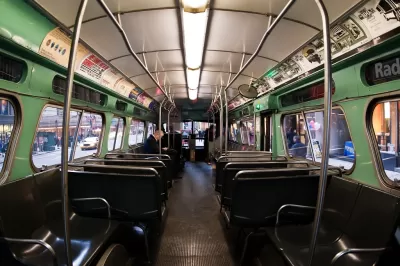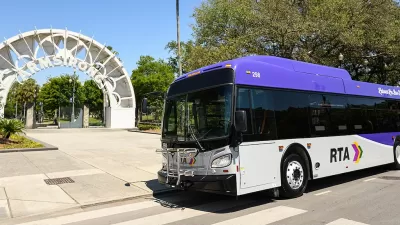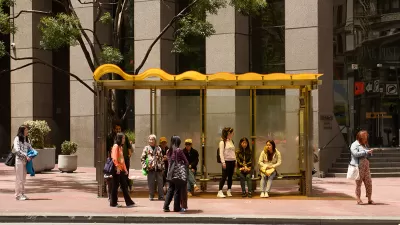Although federal transit funding is traditionally reserved for capital improvement and infrastructure projects, advocates argue that funding improved service could have transformative impacts on transit-dependent communities.

In a blog post, TransitCenter, a New York-based transit advocacy organization, joins other transit advocates in a call to making public transit funding a federal priority long after pandemic-related emergency measures are lifted. COVID-19 only served to highlight existing gaps in transit service and the stark inequities faced by transit users. "[A]fter the pandemic recedes, a federal program to support transit service could yield immense dividends," the blog notes.
"In most American cities, the fundamental shortcoming of transit is its sheer scarcity." Allowing "transit agencies to spend federal funds to run buses and trains" after the pandemic, while "a break with longstanding policy," is "the fastest way to deliver better transit networks, improve the experience of current riders, and increase ridership" through increased service.
TransitCenter offers an analysis of the projected effects of a $20 billion investment in transit service nationwide, which, according to an analysis by the Urban Institute, could "be more than enough to bring transit service in every U.S. urban area up to the level in the Chicago region." Such a program, TransitCenter argues, could yield immense benefits for transit riders. "Instead of cutting people off from opportunity, condemning households to struggle with high transportation costs, and overheating the planet, our transportation systems can advance economic fairness, racial equity, and climate action."
FULL STORY: Envisioning a Federal Program to Increase Transit Service

Alabama: Trump Terminates Settlements for Black Communities Harmed By Raw Sewage
Trump deemed the landmark civil rights agreement “illegal DEI and environmental justice policy.”

Planetizen Federal Action Tracker
A weekly monitor of how Trump’s orders and actions are impacting planners and planning in America.

The 120 Year Old Tiny Home Villages That Sheltered San Francisco’s Earthquake Refugees
More than a century ago, San Francisco mobilized to house thousands of residents displaced by the 1906 earthquake. Could their strategy offer a model for the present?

In Both Crashes and Crime, Public Transportation is Far Safer than Driving
Contrary to popular assumptions, public transportation has far lower crash and crime rates than automobile travel. For safer communities, improve and encourage transit travel.

Report: Zoning Reforms Should Complement Nashville’s Ambitious Transit Plan
Without reform, restrictive zoning codes will limit the impact of the city’s planned transit expansion and could exclude some of the residents who depend on transit the most.

Judge Orders Release of Frozen IRA, IIJA Funding
The decision is a victory for environmental groups who charged that freezing funds for critical infrastructure and disaster response programs caused “real and irreparable harm” to communities.
Urban Design for Planners 1: Software Tools
This six-course series explores essential urban design concepts using open source software and equips planners with the tools they need to participate fully in the urban design process.
Planning for Universal Design
Learn the tools for implementing Universal Design in planning regulations.
Clanton & Associates, Inc.
Jessamine County Fiscal Court
Institute for Housing and Urban Development Studies (IHS)
City of Grandview
Harvard GSD Executive Education
Toledo-Lucas County Plan Commissions
Salt Lake City
NYU Wagner Graduate School of Public Service





























